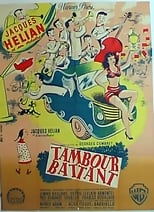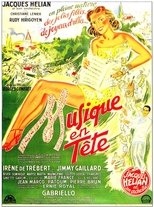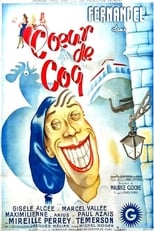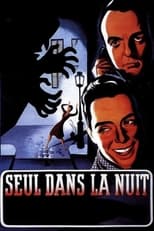

Jacques Hélian
Born: June 7, 1912
Died: June 29, 1986
in Paris, France
Died: June 29, 1986
in Paris, France
Jacques Mikaël Der Mikaëlian better known as Jacques Hélian (born in Paris, 7 June 1912 - died 29 June 1986), was a famous French orchestra conductor for French music-hall.
Born of an Armenian father (descendant of Armenian bourgeoisie) and a French mother, at 16 he entered school of dentistry, but left his studies to pursue his love of music studying saxophone with Raymond Legrand (who later married Hélian's sister Marcelle). He commenced his musical career playing saxo alto, saxo baryton and clarinet in Roland Dorsay's orchestra and later in Jo Bouillon's and Ray Ventura's. He also performed in French live radio broadcasts releasing a number of recordings before the Second World War. Called for military service in 1939, he was captured and was a prisoner of war until March 1943, when he was freed for health reasons. After his release, he formed a small orchestra and performed on radio.
After the liberation of France, from Nazi occupation, Hélian gained huge popularity, replacing Raymond Legrand's fame. His tune "Fleur de Paris" (with lyrics from Maurice Vandair, and music by Henri Bourtayre) became a virtual "hymn of liberation" for France. All musical broadcasts would start and end with "Fleur de Paris".
Between 1945 and 1949, Hélian recorded more than 70 songs for Columbia Records, with C'est si bon in 1948 and Maître Pierre in 1949 gaining international fame. "Place Pigalle" was written by Alex Alstone and recorded by Maurice Chevalier in 1946 with Hélian's orchestra. He collaborated with composers Henri Bourtayre ("Chanteville", "La Marchina", "Soleil levant") and Loulou Gasté ("Le Porte-Bonheur", "Chica! Chica!", "Au Chili", "Les Pompiers du Mexique"). Hélian continued his highly followed radio performances and organized galas and musical tours throughout France with artists who gained a big following after appearing with his orchestra, including Francine Claudel, Zappy Max, Jo Charrier, Ginette Garcin, and others. In 1947, a singer, guitarist and composer known as Jean Marco (real name Jean Marcopoulos), quickly became the signature voice of Hélian's orchestra until his death in a road accident on 24 June 1953. Jean-Louis Tristan and Lou Darley succeeded Jean Marco and Claude Evelyne as lead singers.
Hélian's "Étoile des neiges" sung by "The Hélians" female choir became one of his biggest successes ever, with a gold accreditation. In 1951, he received the Grand Prix du Disque from Académie Charles Cros for his song "Tout est tranquille".
Between 1949 and 1956, the best of French and European jazz artists appeared with Hélian's orchestra, including Christian Garros, Gérard Lévecque, André Paquinet, George Cloud, Fernand Verstraete, Marcel Bianchi, Pierre Gossez, Janot Morales, Fats Sadi, and from the other side of the Atlantic, jazzmen Ernie Royal, Al Mone, Bill Tamper, Don Byas, Kenny Clarke, and Sonny Grey, making his band one of the best known names of the "big bands" in Europe. His music was used in a number of films, including Cœur de coq (1946), Pigalle-Saint-Germain-des-Prés (1950), Musique en tête (1951) and Tambour battant (1952). The permanent orchestra's grande finale was on 15 March 1957. ...
Source: Article "Jacques Hélian" from Wikipedia in English, licensed under CC-BY-SA 3.0.
Born of an Armenian father (descendant of Armenian bourgeoisie) and a French mother, at 16 he entered school of dentistry, but left his studies to pursue his love of music studying saxophone with Raymond Legrand (who later married Hélian's sister Marcelle). He commenced his musical career playing saxo alto, saxo baryton and clarinet in Roland Dorsay's orchestra and later in Jo Bouillon's and Ray Ventura's. He also performed in French live radio broadcasts releasing a number of recordings before the Second World War. Called for military service in 1939, he was captured and was a prisoner of war until March 1943, when he was freed for health reasons. After his release, he formed a small orchestra and performed on radio.
After the liberation of France, from Nazi occupation, Hélian gained huge popularity, replacing Raymond Legrand's fame. His tune "Fleur de Paris" (with lyrics from Maurice Vandair, and music by Henri Bourtayre) became a virtual "hymn of liberation" for France. All musical broadcasts would start and end with "Fleur de Paris".
Between 1945 and 1949, Hélian recorded more than 70 songs for Columbia Records, with C'est si bon in 1948 and Maître Pierre in 1949 gaining international fame. "Place Pigalle" was written by Alex Alstone and recorded by Maurice Chevalier in 1946 with Hélian's orchestra. He collaborated with composers Henri Bourtayre ("Chanteville", "La Marchina", "Soleil levant") and Loulou Gasté ("Le Porte-Bonheur", "Chica! Chica!", "Au Chili", "Les Pompiers du Mexique"). Hélian continued his highly followed radio performances and organized galas and musical tours throughout France with artists who gained a big following after appearing with his orchestra, including Francine Claudel, Zappy Max, Jo Charrier, Ginette Garcin, and others. In 1947, a singer, guitarist and composer known as Jean Marco (real name Jean Marcopoulos), quickly became the signature voice of Hélian's orchestra until his death in a road accident on 24 June 1953. Jean-Louis Tristan and Lou Darley succeeded Jean Marco and Claude Evelyne as lead singers.
Hélian's "Étoile des neiges" sung by "The Hélians" female choir became one of his biggest successes ever, with a gold accreditation. In 1951, he received the Grand Prix du Disque from Académie Charles Cros for his song "Tout est tranquille".
Between 1949 and 1956, the best of French and European jazz artists appeared with Hélian's orchestra, including Christian Garros, Gérard Lévecque, André Paquinet, George Cloud, Fernand Verstraete, Marcel Bianchi, Pierre Gossez, Janot Morales, Fats Sadi, and from the other side of the Atlantic, jazzmen Ernie Royal, Al Mone, Bill Tamper, Don Byas, Kenny Clarke, and Sonny Grey, making his band one of the best known names of the "big bands" in Europe. His music was used in a number of films, including Cœur de coq (1946), Pigalle-Saint-Germain-des-Prés (1950), Musique en tête (1951) and Tambour battant (1952). The permanent orchestra's grande finale was on 15 March 1957. ...
Source: Article "Jacques Hélian" from Wikipedia in English, licensed under CC-BY-SA 3.0.
Movies for Jacques Hélian...

Title: Midi Première
Character: Self
Released: January 6, 1975
Type: TV
Midi Première is a French variety show presented by Danièle Gilbert, directed by Jacques Pierre and broadcast from January 6, 1975 until January 1, 1982 on TF1. The program was generally broadcast between 12:15 p.m. and 12:55 p.m., then giving way to the 1:00 p.m. TV news. However, the broadcast schedule could change, depending on the guests, and the setting where the recording of the program was shot. Certain performances by artists who have become cult like the one where Ringo jostles with a demonstrator in interpretation (1977), that of Dalida with the title There is always a song with the soundtrack that does not start, twice, at the right speed (1978), Claude François and his Clodettes, who, in the provinces, are unable to join "the set" in order to interpret his song, the latter being taken by the crowd of delirious fans (summer 1977) . The group Supertramp performed there with the title "Dreamer" on March 8, 1975.


Title: The Fighting Drummer
Character: Self
Released: December 12, 1952
Type: Movie
The rivalry between Albert Gambier, head of the municipal brass band, and the jazz band, led by Jacques Hélian, provokes many comic adventures in this small provincial town. Everything will end in songs, thanks to the love uniting Jimmy, the band's composer, and Nicole, Gambier's daughter.


Title: Musique en tête
Character: Self
Released: November 1, 1951
Type: Movie
Jacques Hélian, an attractive charm singer, too stifled by the jealousy of the radio director's niece, flees with his orchestra, on the advice of his secretary Bob. They fail in a small village, where there is a boarding school for young girls. Bob responds to the love letters the teacher sends to the handsome singer.


Title: Pigalle-Saint-Germain-des-Prés
Character: Self
Released: December 8, 1950
Type: Movie
"Le Tambourin", a Montmartre nightclub, is on its way down. Although it can boast great performances by the alluring Les Bluebell Girls and by Jacques Hélian's lively Big Band the venue does not attract people anymore. Nightclub patrons now prefer the jazz cellars of Saint-Germain-des-Prés. Taking this new taste into account, the staff of the "Tambourin" and Jacques Hélian decide to set up their own club, "La Pivoine Ecarlate". They are joined by Pâquerette, a flower vendor and amateur singer, and by Jean-Pierre Francis, an existentialist poet...


Title: Rooster Heart
Character: Self
Released: December 26, 1946
Type: Movie
A man is too shy to ask a girl out and decides to kill himself. While lying in the road he is rescued by a Doctor who tries to cure him by implanting the heart of a rooster into him, something which suddenly makes him irresistible to women.


Title: Alone in the Night
Character: Self
Released: November 21, 1945
Type: Movie
A series of crimes is being perpetrated around a famous singer. Strangely, during each of the crimes, the artist's voice is heard humming his favorite song. Suspicions lead to a chase through a nocturnal Paris, ending in a disused theater where the assassin has lured his final victim.
